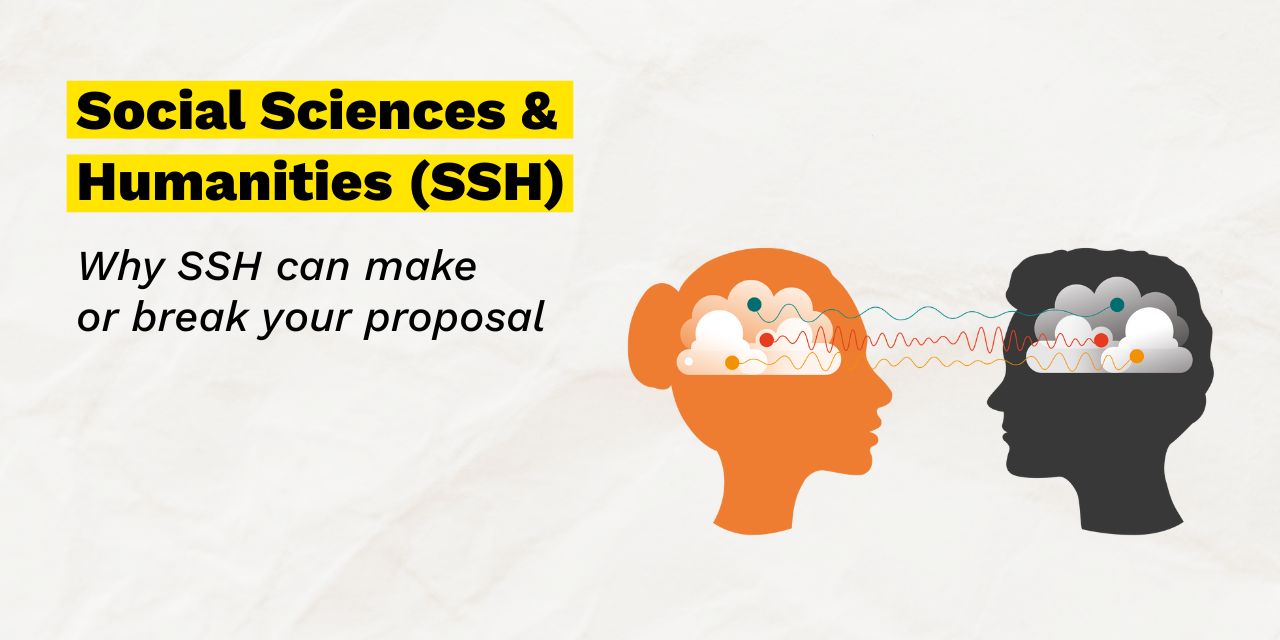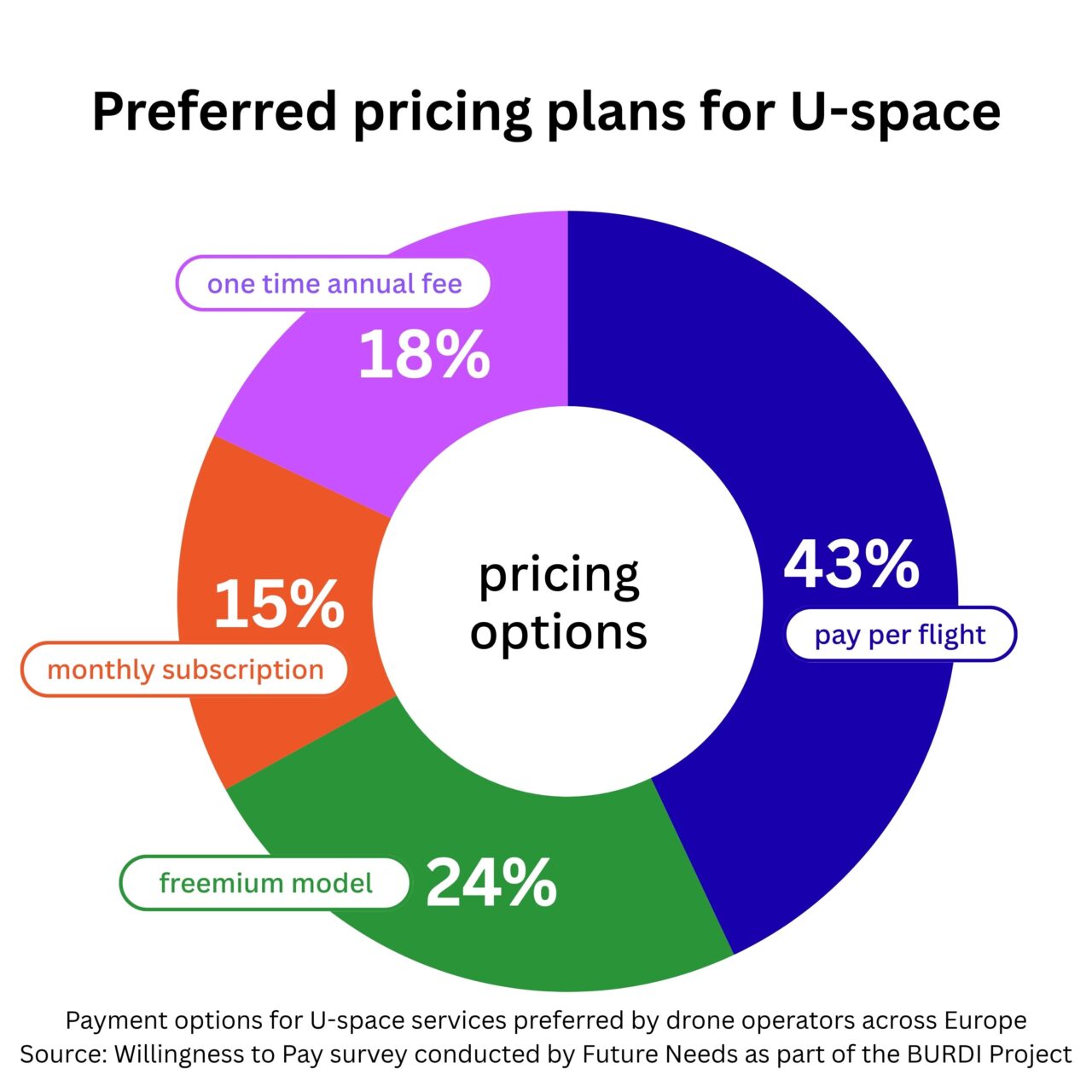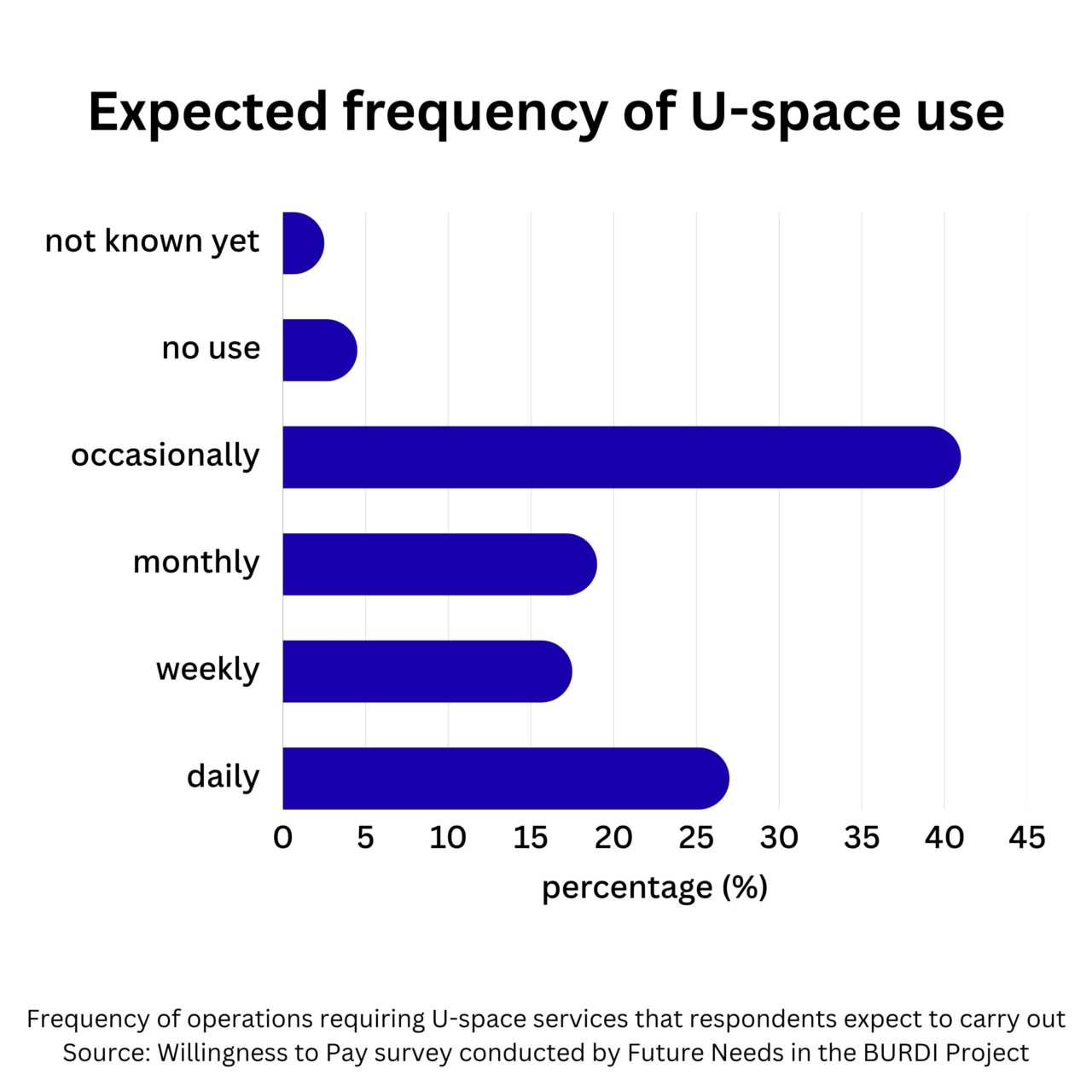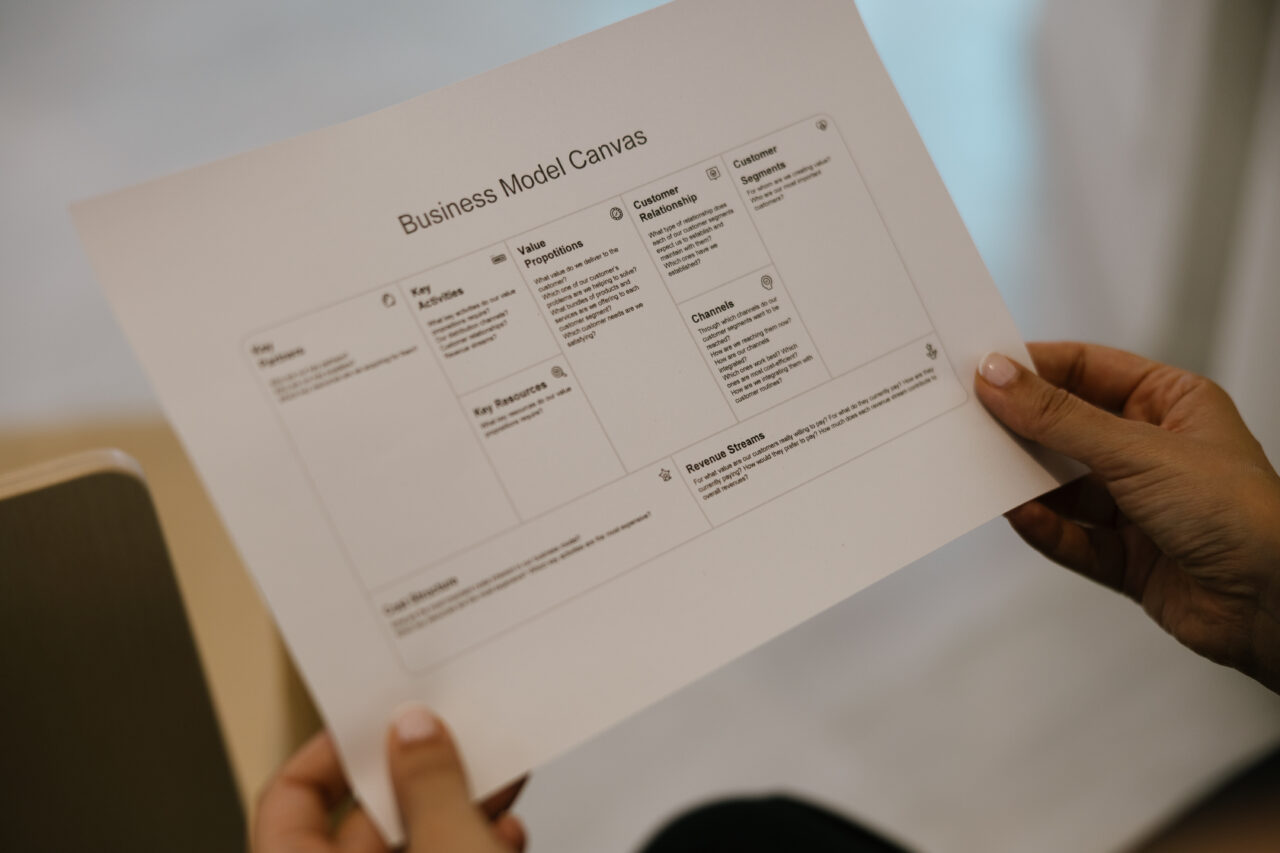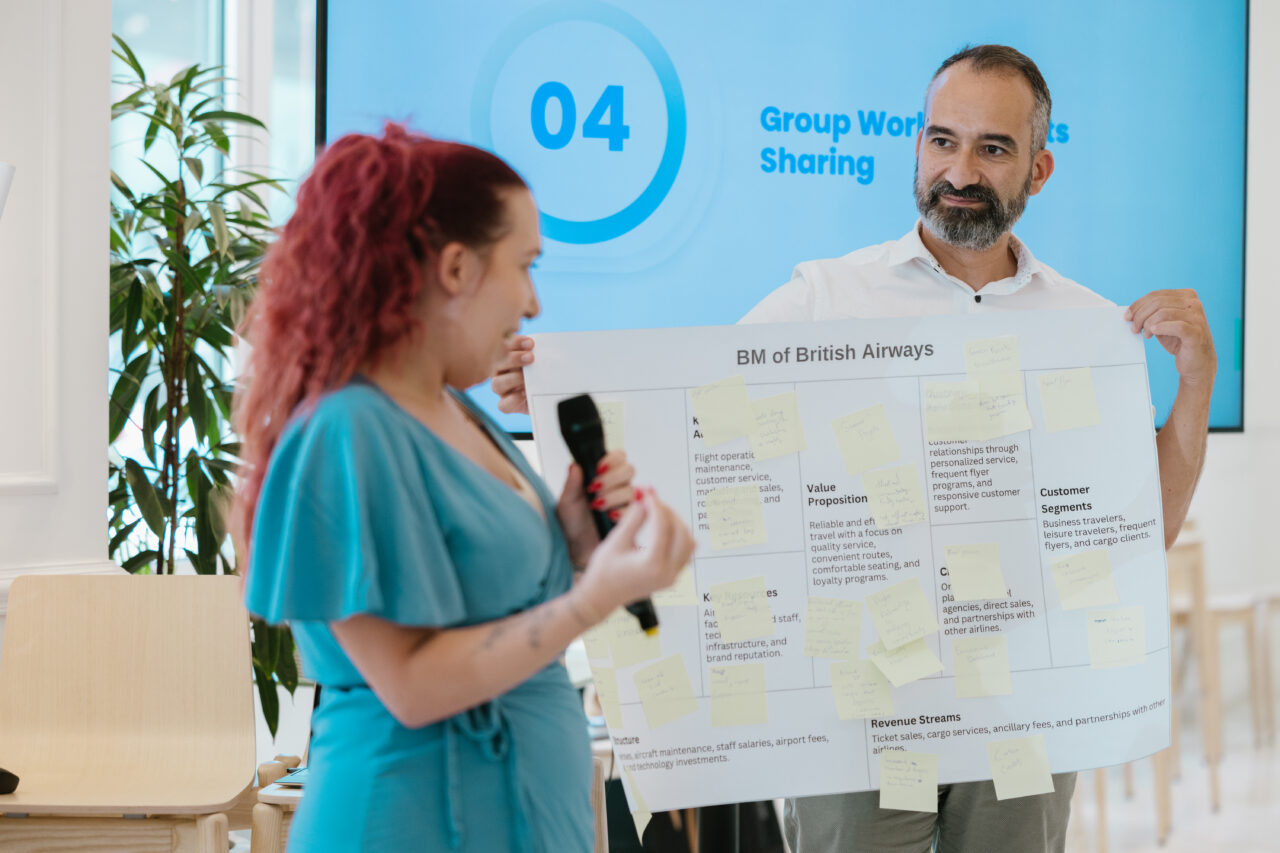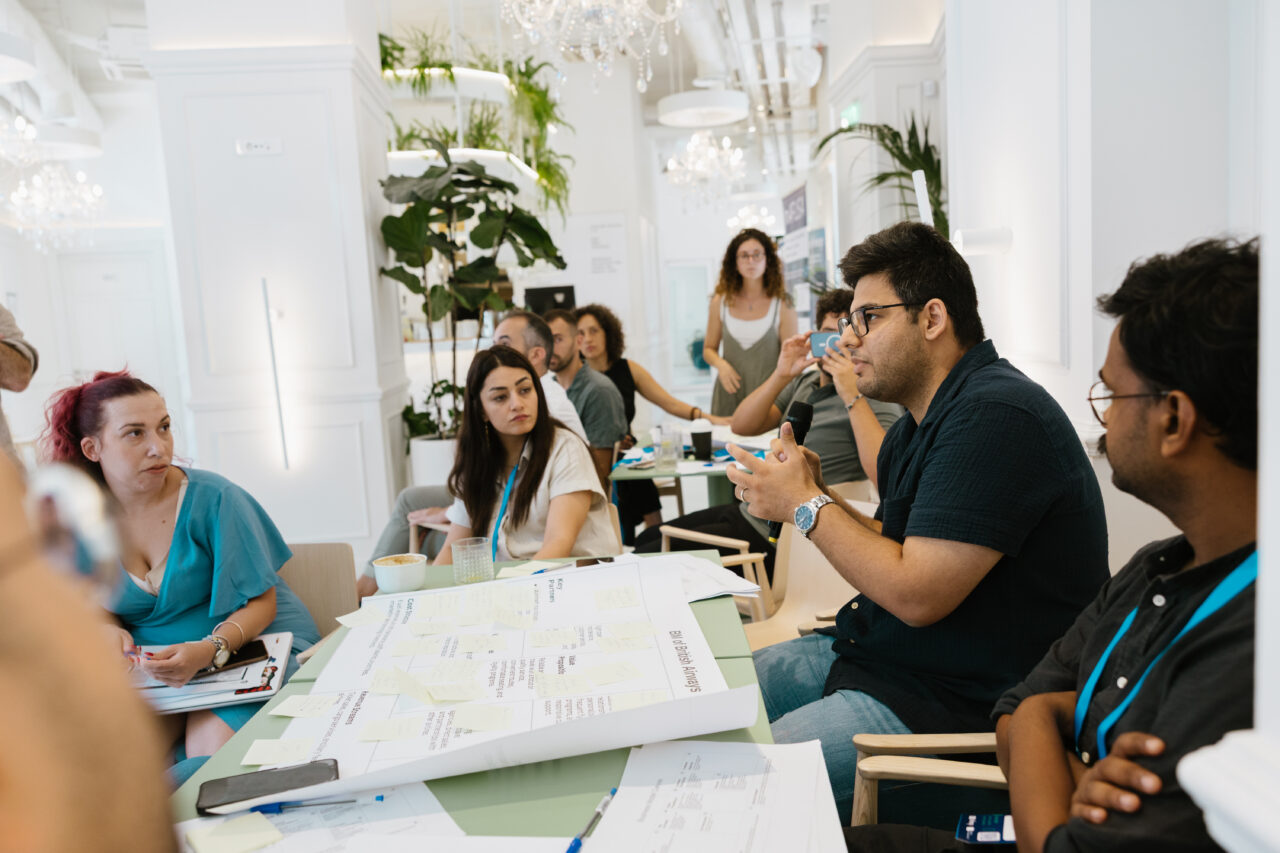Introduction
30% of Horizon Europe projects already include Social Sciences and Humanities (SSH) partners.
That’s not a coincidence, it’s a signal. The European Commission wants research that is impactful, inclusive, and human-centred. Projects that overlook SSH risk losing evaluation points, missing impact, or appearing disconnected from societal needs.
If your next proposal doesn’t have meaningful SSH integration, you’re competing at a disadvantage.
What is SSH in Horizon Europe?
SSH in Horizon Europe is broader than many assume. It covers disciplines such as:
- Social sciences: sociology, psychology, economics, law, political science, business, education, communication.
- Humanities: history, linguistics, philosophy, arts, culture, archaeology.
The Commission frames SSH as essential for tackling today’s complex challenges. Technical solutions alone can’t solve climate change, health crises, or digital trust. SSH brings in the human dimension: how people behave, adopt, accept, regulate, and value innovations. (EC SSH integration).
While the Commission defines SSH through traditional disciplines (economics, sociology, history, linguistics, law, etc.) and Horizon Europe call topics explicitly mention “SSH inclusion” as a call requirement, often times topic descriptions also include terms such as “co-creation,” “user engagement,” “user validation,” “participatory approaches,” and “societal readiness.” These align closely with User Experience (UX) and Design Thinking, which, though not formally listed, function as the glue between SSH and STEM.
Future Needs specializes in this interface: bringing human needs and expectations into technology development, ensuring that solutions are not only technically feasible but also socially desirable and economically viable.
Key Takeaways for Coordinators and Proposal Writers
- SSH is mainstream. Around 88% of Horizon Europe projects include at least one SSH partner, and SSH organisations represent about 22% of all partners. (EU Publications Office monitoring report).
- SSH-flagged topics matter. Many calls explicitly require SSH contributions. If your proposal ignores them, evaluators will notice.
- Evaluation is strict. For flagged topics, proposals are expected to name SSH disciplines, embed SSH experts, and show concrete methods and outputs. Weak integration can lower your score.
- Even when not flagged, it’s relevant. If SSH isn’t applicable, you must explain why. If it is, integrating it strengthens your impact case.
- UX is a differentiator. Even where SSH is underplayed, calls often emphasise user engagement, validation, and co-creation—areas where UX and Design Thinking bring SSH and STEM together.
Why SSH Integration Matters
- Stronger evaluation scores. Proposals with visible SSH integration show interdisciplinary strength and responsiveness to EU expectations.
- Policy alignment. SSH ensures that research connects with EU priorities: Green Deal, Digital Transition, inclusiveness, SDGs.
- Impact and uptake. Understanding behaviour, economics, and governance drives adoption and acceptance of innovations.
- Risk reduction. SSH analysis surfaces barriers—regulatory, market, social—that can derail otherwise strong technical work.
- Trust and inclusiveness. Research perceived as people-focused stands a better chance of funding and of long-term impact.
- Innovation sweet spot. UX and Design Thinking connect desirability (human needs), viability (business case), and feasibility (technical and organisational readiness). This ensures projects don’t just advance science, they deliver innovation that works in the real world.
How to Integrate SSH: Steps and Checklist
- Identify relevance early.
Check whether your call is flagged for SSH in the Funding & Tenders Portal. Map SSH disciplines relevant to your objectives. - Embed SSH partners.
Don’t delegate SSH to dissemination alone. Assign SSH experts to core work packages and tasks. - Specify methods.
Name concrete approaches—cost-benefit analysis, policy analysis, demand surveys, user studies—not just “social insights.” - Connect to KPIs and impact.
Design indicators that reflect human, economic, and societal dimensions, not only technical outputs. - Cover societal readiness.
Show how your project addresses adoption, behaviour, inclusiveness, and governance. - Justify if absent.
If you genuinely believe SSH isn’t relevant, explain why evaluators expect this.
Checklist for proposals:
- SSH disciplines named
- SSH partners embedded in tasks
- Methods and data sources specified
- SSH linked to KPIs and impacts
- Adoption and governance considered
- Justification provided if not relevant
Applied Examples from Future Needs
At Future Needs, we serve as SSH partners in Horizon Europe projects across health, climate, digital, and aviation. Some concrete examples:
BURDI Project (BeNe U-space Reference Design Implementation)
- Cost-Benefit Analysis: Valuation models comparing economic, social, and environmental effects of EU projects, evidence for policymakers.
- Pricing Analysis: Assessing willingness-to-pay across stakeholders to support commercialization strategies.
- Supply & Demand Studies: Combining surveys and interviews to model adoption pathways for emerging technologies.
BURDI Project & ImAFUSA Project (Impact and capacity Assessment Framework for U-space societal Acceptance)
- Policy Analysis & Recommendations: Reviewing regulatory frameworks and best practices to deliver actionable guidance to policymakers.
- Impact Assessments: Evaluating potential effects on economy, society, and environment under different scenarios.
- Performance Indicators: Linking SUMI and SDG metrics to track sustainable mobility outcomes.
RefMap Project (Reducing Environmental Footprint through transformative Multi-scale Aviation Planning)
- Minimum Viable Product: Designing decision-support tools for sustainable aviation that capture noise, emissions, and air quality concerns.
- Business Models: Workshops to validate value delivery, bridging technology with market adoption.
Multiple projects
- UX & Design Thinking Facilitation: Future Needs brings SSH and STEM together by capturing user and business needs, translating them into technical requirements, and validating them through pilots and evaluations. This participatory approach ensure innovations are socially desirable, technically feasible, and economically viable.
Frequently Asked Questions
Q: What if my call isn’t SSH-flagged?
A: Integration can still strengthen your case. At minimum, explain why SSH is or isn’t relevant.
Q: Is SSH only about dissemination or communication?
A: No. SSH contributions belong in the research design itself—analysis, modelling, impact assessment, policy, user adoption.
Q: Which SSH disciplines should I name?
A: Choose from the Commission’s list: economics, law, sociology, psychology, history, linguistics, political science, arts, etc. Be specific.
Q: Can SSH partners be subcontractors?
A: Evaluators expect real participation. Embedding them as partners in the consortium signals stronger commitment.
Conlusion
SSH is not optional in Horizon Europe. It is a decisive factor for winning funding and achieving impact. The Commission expects it, evaluators check for it, and successful projects rely on it.
But Horizon Europe goes further than the formal list of SSH disciplines. Calls increasingly highlight user engagement, co-creation, validation, participatory approaches, and societal readiness. This is precisely where Future Needs stands out.
We bridge SSH and STEM through UX and Design Thinking, connecting desirability (human needs), viability (business value), and feasibility (technical and organisational readiness). In practice, this means facilitating participatory workshops, translating expectations into technical requirements, and validating them through pilots, thus, ensuring innovations are not only fundable, but also adopted in the real world.
If your call requires SSH—or uses language like user engagement or co-creation—we can help. Explore our SSH Research Services.
Future Needs combines SSH expertise (cost-benefit analysis, impact assessment, policy guidance, business model design) with UX leadership to strengthen your proposal and its outcomes.
About the authors

Anna Palaiologk, the founder of Future Needs, is a Research & Innovation Consultant with 18 years of experience in proposal writing and project management. She has worked as a project Coordinator and Work Package leader in 30+ EU projects and has authored 50+ successful proposals. Her research background is in economics, business development and policy-making. Email Anna at anna@futureneeds.eu.
 Eva Palaiologk, the Chief Experience Officer (CXO) at Future Needs, leads the design of meaningful, human-centered experiences across the company’s projects and collaborations. Combining her roles as Project Manager in the MULTIPULM project and UX Researcher in UrbanAir project , Eva ensures that innovation is always grounded in real user needs. Email Eva at eva@futureneeds.eu.
Eva Palaiologk, the Chief Experience Officer (CXO) at Future Needs, leads the design of meaningful, human-centered experiences across the company’s projects and collaborations. Combining her roles as Project Manager in the MULTIPULM project and UX Researcher in UrbanAir project , Eva ensures that innovation is always grounded in real user needs. Email Eva at eva@futureneeds.eu.
 Nikoleta Krousouloudi is a Transportation and Environmental Scientist and a Researcher at Future Needs. She contributes her expertise to the company’s aviation projects BURDI, ImAFUSA, and RefMap, focusing on advancing sustainable and data-driven solutions for the future of air mobility. Email Nikoleta at niki@futureneeds.eu.
Nikoleta Krousouloudi is a Transportation and Environmental Scientist and a Researcher at Future Needs. She contributes her expertise to the company’s aviation projects BURDI, ImAFUSA, and RefMap, focusing on advancing sustainable and data-driven solutions for the future of air mobility. Email Nikoleta at niki@futureneeds.eu.

